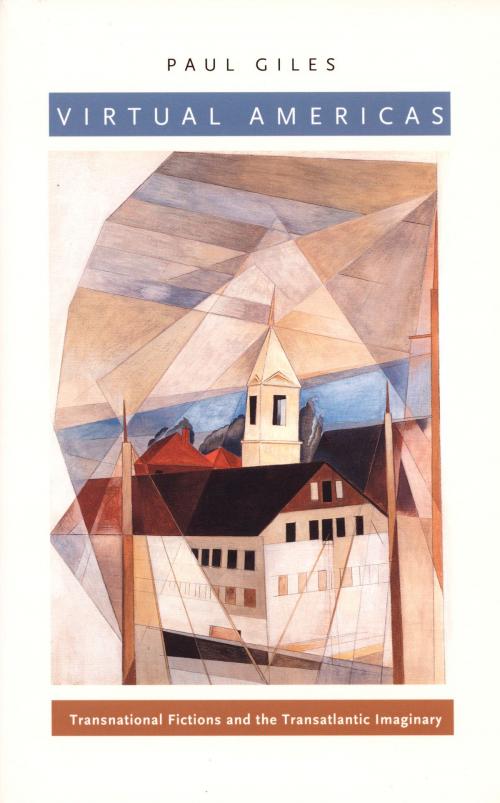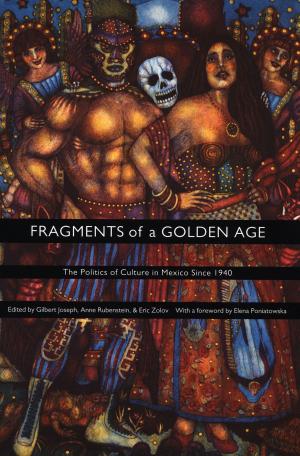Virtual Americas
Transnational Fictions and the Transatlantic Imaginary
Fiction & Literature, Literary Theory & Criticism, American, Nonfiction, Social & Cultural Studies, Political Science, International, International Relations| Author: | Paul Giles, Donald E. Pease | ISBN: | 9780822384045 |
| Publisher: | Duke University Press | Publication: | August 15, 2002 |
| Imprint: | Duke University Press Books | Language: | English |
| Author: | Paul Giles, Donald E. Pease |
| ISBN: | 9780822384045 |
| Publisher: | Duke University Press |
| Publication: | August 15, 2002 |
| Imprint: | Duke University Press Books |
| Language: | English |
Arguing that limited nationalist perspectives have circumscribed the critical scope of American Studies scholarship, Virtual Americas advocates a comparative criticism that illuminates the work of well-known literary figures by defamiliarizing it—placing it in unfamiliar contexts. Paul Giles looks at a number of canonical nineteenth- and twentieth-century American writers by focusing on their interactions with British culture. He demonstrates how American authors from Herman Melville to Thomas Pynchon have been compulsively drawn to negotiate with British culture so that their nationalist agendas have emerged, paradoxically, through transatlantic dialogues. Virtual Americas ultimately suggests that conceptions of national identity in both the United States and Britain have emerged through engagement with—and, often, deliberate exclusion of—ideas and imagery emanating from across the Atlantic.
Throughout Virtual Americas Giles focuses on specific examples of transatlantic cultural interactions such as Frederick Douglass’s experiences and reputation in England; Herman Melville’s satirizing fictions of U.S. and British nationalism; and Vladimir Nabokov’s critique of European high culture and American popular culture in Lolita. He also reverses his perspective, looking at the representation of San Francisco in the work of British-born poet Thom Gunn and Sylvia Plath’s poetic responses to England. Giles develops his theory about the need to defamiliarize the study of American literature by considering the cultural legacy of Surrealism as an alternative genealogy for American Studies and by examining the transatlantic dimensions of writers such as Henry James and Robert Frost in the context of Surrealism.
Arguing that limited nationalist perspectives have circumscribed the critical scope of American Studies scholarship, Virtual Americas advocates a comparative criticism that illuminates the work of well-known literary figures by defamiliarizing it—placing it in unfamiliar contexts. Paul Giles looks at a number of canonical nineteenth- and twentieth-century American writers by focusing on their interactions with British culture. He demonstrates how American authors from Herman Melville to Thomas Pynchon have been compulsively drawn to negotiate with British culture so that their nationalist agendas have emerged, paradoxically, through transatlantic dialogues. Virtual Americas ultimately suggests that conceptions of national identity in both the United States and Britain have emerged through engagement with—and, often, deliberate exclusion of—ideas and imagery emanating from across the Atlantic.
Throughout Virtual Americas Giles focuses on specific examples of transatlantic cultural interactions such as Frederick Douglass’s experiences and reputation in England; Herman Melville’s satirizing fictions of U.S. and British nationalism; and Vladimir Nabokov’s critique of European high culture and American popular culture in Lolita. He also reverses his perspective, looking at the representation of San Francisco in the work of British-born poet Thom Gunn and Sylvia Plath’s poetic responses to England. Giles develops his theory about the need to defamiliarize the study of American literature by considering the cultural legacy of Surrealism as an alternative genealogy for American Studies and by examining the transatlantic dimensions of writers such as Henry James and Robert Frost in the context of Surrealism.















